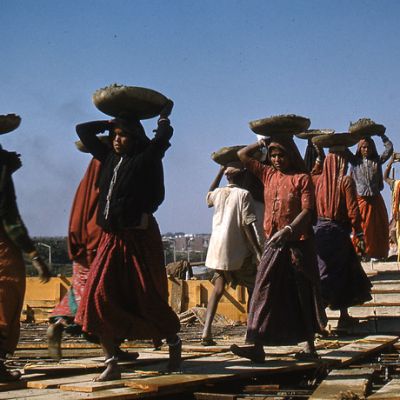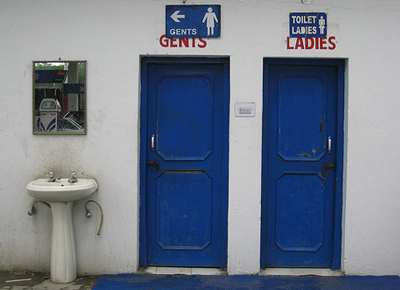Categories
People make assumptions about both mobility and sexuality and quite often reduce them to a few simple, unidimensional concepts. Sexuality is reduced to sex, marriage and the gender binary. Mobility is reduced to ableist concepts of body and capacity, and access to, or the possession of, a vehicle to get from point A to B.
A smile could just be an innocuous communication, expressing politeness or warmth. But for a woman out in public, her smile is often misconstrued
It is this camaraderie with sexualness that made my mother uncomfortable about my comfort with lipsticks. Stains become metonyms for the woman herself, and her sexuality. It is possible that this stain might stay on someone’s mind as they encounter a stained cup. It is possible that even if they never have seen the person, they would now be compelled to imagine them.
आज के समय में जब विश्व में एक स्थान से दूसरे स्थान पर जाने की घटनाएँ बढ़ी हैं और सामाजिक मान्यताओं में भी बदलाव आया है, ऐसे में केवल विवाह ही, महिलाओं के एक जगह से दूसरी जगह प्रवास करने का एकमात्र कारण नहीं रह गया है।
People in the city move from their homes to their workplaces and back to their homes. The production of this everyday rhythm of the city makes people accustomed to the sexual overtones that come with it.
Our sexuality is often in flux – being manoeuvred (sometimes in ways we cannot control) by the crashing waves of societal expectations, circumstances, and our own choices and experiences. But the world continues to uphold a fixed, rigid idea of sexuality, and continues to confine us within this idea, and therein lies the conflict.
Jeeja Ghosh is a disability rights researcher and activist, feminist, parent, writer, scholar and trainer. Her lived experience of disability, and of standing up against discrimination and injustice, is at the core of her work and insights. Shikha Aleya interviews Jeeja about mobility across divides other than the physical.
There is a direct correlation between mobility and sexuality. Women’s mobility does get hampered because of both social as well as economic reasons, leading to this contradictory fall in female LFPR despite a growing economy.
The patriarchal system strictly enforces gender roles and social norms that privilege men over women. This sense of male entitlement over women and girls’ bodies have insured their confinement to spaces where they are stripped of power, threatened by harassment and discrimination, and extremely vulnerable so that men get to play the role of protectors.
अलग-अलग शौचालय बनाने के अपने लाभ हैं, विशेषकर जब कि एक जेंडर को दूसरे जेंडर से खतरा महसूस होता हो। लेकिन इस पूरे कृत्य को सामान्य बना देने और इसे जेंडर भेद से दूर करने से संभव है कि महिलाओं को, जहाँ कहीं भी वे हों, प्रयोग के लिए आसानी से शौचालय उपलब्ध हो सकें।
Continuing with our theme of Erotica and Sexuality, in this mid-month issue we bring you more articles that reveal the power of erotica to stimulate as well as challenge.
An analysis of billions of hits to PornHub (one of the largest online porn sites in the world) shows that m/m is consistently the second most popular category for women visitors, and that women make up 37% of m/m porn viewers – suggesting that women represent viable secondary consumers of this type of porn.
Lots of things, people, and moments have possibilities for stirring the erotic within us. The bible, the dictionary or the stories on nifty.org may become pre-texts to something new within ourselves and others.
In a society where queer sexuality had been demonised in not just mainstream fiction but also mainstream culture, the erotic fanfiction that emerged out of kinkfests became an important source of queer sex-positivity.
Erotica moved from objectifying bodies to seeing people as more than vaginas and penises, there were actual stories and descriptions about why the characters liked what they were doing and what they enjoyed.















